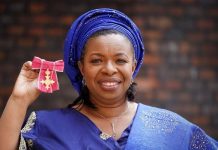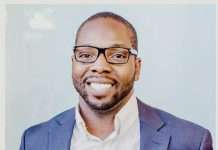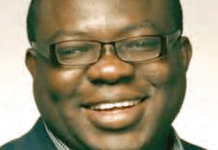Sickle cell disease (SCD) is one of the most common genetic disorders worldwide and it is highly prevalent in the Middle East, Mediterranean regions, Southeast Asia, and sub-Saharan Africa. Sickle cell anaemia is an inherited form of anaemia. It is a condition in which there is not enough healthy red blood cells to carry adequate oxygen throughout the body.
Nigeria has the highest burden of SCD in the world and is also the top sickle cell endemic country in Africa. About 40 million Nigerians are healthy carriers of the sickle cell gene, while about 150,000 children are born with sickle cell disease yearly according to the World Health Organisation. Moreover, it has been estimated that SCD is responsible for an annual infant death of over 100,000 in Nigeria, representing more than 8 per cent of infant mortality in the country.

Accordingly, as the world marks the World Sickle Cell Disease day on 19 June, it is fitting to recognise the efforts of medical professionals who have dedicated their lives and career in pursuit of better ways to manage SCD and improve the quality of life of people who suffer from it. One of such individuals is the world renowned haematologist and clinical geneticist, Professor Olu Akinyanju.
Indeed, it will be impossible for anyone to talk about management of sickle cell disease in Nigeria and indeed Africa without mentioning Professor Akinyanju. He is the founder and current chairman of the Sickle Cell Foundation Nigeria and it was his pioneering efforts that led to the establishment of the National Sickle Cell Centre in Lagos. He has made numerous publications and presentations on sickle cell and he is also a member of World Health Organisation (WHO)’s expert committee on hereditary disease. He is currently advising the WHO on the introduction of sickle cell programming in developing countries.
Road to Impact
Although the Nigerian Society for Haematology and Blood Transfusion had formed the Sickle Cell Club of Nigeria (SCCN) in 1972, SCD was not regarded as an issue of public health concern in Nigeria for a long time. In fact, the club – which was a non-governmental, non-profit making Patient & Parent Support and Advocacy organisation, with branches in university centres such as Benin, Ibadan, Lagos and Kaduna – was hampered by the lack of funding and government support. Notwithstanding, the branch in Kaduna remained active due to the passion and drive of its leader, Professor Alan Fleming.
Professor Akinyanju’s passion and drive to help those with SCD led him, in 1985, to revamp the moribund sickle cell club in Lagos. He also organised an international symposium on sickle cell disorders, followed by annual training courses on genetic counselling from 1986. Before then, there had been no awareness programmes, screening centres/clinics and adequately trained healthcare personnel for the management of SCD in the country.
It must be noted however that Akinyanju’s passion for sickle cell patients had considerably been stirred by the relentless efforts of Mary Jo Agba, a sickle cell patient, whom he had met in 1984 at the sickle cell clinic in LUTH. Jo Agba had just returned from the USA and was working for the Nigeria Television Authority. She had asked Akinyanju to join her in setting up an association but Akinyanju introduced her to the already existing Sickle Cell Club and persuaded her to help revive it. Thus, both of them, together with Chief Opral Benson, resuscitated the sickle cell club and made it is today.
In 1991, Akinyanju founded the Federation of Sickle Cell Clubs of Nigeria (FESCCON) for mutual support and harmonisation. It was also for the same reasons that he co-founded, in 1996, the Federation des Association contre la lutte de la depranocytose en Afrique (FALDA) which links the non-governmental sickle cell organisations in 13 West African countries.
The need to develop a national sickle cell centre in Nigeria to address important issues, such as capacity building, research, policy development, policy implementation, monitoring and evaluation necessary for the sustained management and control of sickle cell disorder (SCD) in Nigeria soon became necessary and Akinyanju founded the Sickle Cell Foundation Nigeria in 1994 for this purpose.
Education and career
Professor Akinyanju had his secondary education at Government College, Ughelli, where he graduated in 1949. The school, which was founded in 1945, was sited initially at Warri and was known as Warri Middle School, before it was later moved to Ughelli. As a growing child, Akinyanju wanted to become a doctor, who would conquer cardiac disease. This fascination for cardiology was developed by his regular perusal of his father’s copies of the Reader’s Digest. The health pages were full of the ravages of heart attacks.
Adeyanju’s career journey to haematology was shaped by Providence. He found himself at the right place at the right time. He had received his medical training at the University of London’s St. Mary’s Hospital Medical School, now the Imperial College School of Science, Technology and Medicine. After medical school, he had gone on to specialise in internal medicine in the UK before returning to Nigeria to take up a joint appointment in the departments of medicine and pathology. This exposed him to many patients with sickle cell disorder and he proceeded to separate them from the general haematology clinic into a new dedicated sickle cell clinic.
This encounter with sickle cell patients had spurred him to travel to Toronto, Canada, for a formal training in haematology. On his return, he tackled the total absence of programmes for people with sickle cell disorder in the community and in 1985 resuscitated the Sickle Cell Club in Lagos, where he was elected president with Chief Opral Benson as vice-president and Mary Jo Agba as the publicity secretary.
Professor Akinyanju’s relentless efforts to alleviate the burden of sickle cell disorder and to ensure that all affected persons can have a normal pain-free lives is indeed truly heroic and worthy of recognition.











overseas pharmacies shipping to usa: https://genericwdp.com/ best online international pharmacies india
tadalafil: http://tadalafilonline20.com/ tadalafil max dose